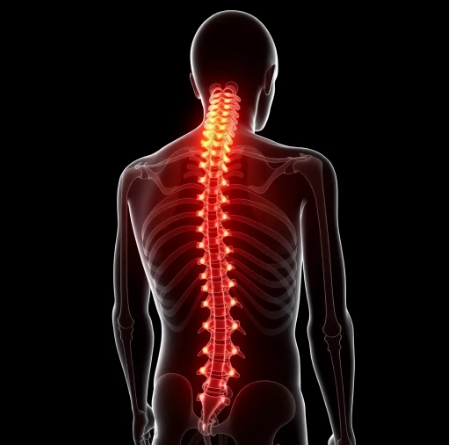Spinal stenosis is a condition that affects millions, often bringing chronic pain, numbness, and weakness that can significantly impact daily life. It typically involves the narrowing of the spinal canal, which puts pressure on the spinal cord and the nerves within. While many cases can be managed with conservative treatments like physical therapy, medication, or injections, some individuals may eventually require surgery to find relief and restore function. If you’re in New Jersey and exploring surgical options, finding the right spinal stenosis surgeon NJ is a critical step.
Understanding Spinal Stenosis and When Surgery Might Be Necessary
Spinal stenosis most commonly affects the lumbar (lower back) and cervical (neck) regions of the spine. This narrowing is often caused by age-related changes like osteoarthritis, thickened ligaments, or bulging discs. Symptoms can vary but often include:
- Pain or numbness in the back, neck, arms, or legs
- Weakness in the limbs
- Cramping or pain in the legs when walking (neurogenic claudication), often relieved by sitting or leaning forward
- Balance problems
- In severe cases, loss of bowel or bladder control
For many, initial treatment focuses on managing pain and improving mobility without surgery. However, if symptoms are severe, progressively worsening, causing significant neurological deficits (like foot drop or severe weakness), or haven’t improved after a substantial course of conservative care (usually several months), a surgeon may be consulted to discuss surgical intervention. The goal of surgery for spinal stenosis is typically decompression – creating more space for the nerves.
The Critical Role of a Spinal Stenosis Surgeon
A surgeon specializing in spinal conditions plays a vital role throughout the process, from diagnosis confirmation to post-operative recovery. They are equipped to:
- Accurately Diagnose: Review imaging (MRI, CT scans) and clinical findings to confirm the diagnosis and pinpoint the exact location and severity of the stenosis.
- Evaluate Treatment Options: Discuss both surgical and non-surgical approaches, explaining the potential risks, benefits, and expected outcomes of each.
- Determine Surgical Candidacy: Assess if surgery is appropriate based on your specific condition, overall health, and lifestyle.
- Perform the Surgery: Utilize advanced techniques to relieve pressure on the nerves, whether through traditional open surgery or minimally invasive procedures.
- Manage Recovery: Oversee your post-operative care plan, including pain management and recommendations for rehabilitation.
Choosing a skilled and experienced surgeon is paramount to achieving the best possible outcome from any spinal surgery.
Finding a Qualified Spinal Stenosis Surgeon in NJ
New Jersey boasts a wealth of highly qualified spine specialists affiliated with leading medical centers and hospitals. However, navigating your options requires careful consideration. Here are key factors to look for when seeking a spinal stenosis surgeon NJ:
- Board Certification and Fellowship Training: Ensure the surgeon is board-certified in Orthopedic Surgery or Neurosurgery. Crucially, look for fellowship training specifically focused on spine surgery. This indicates they have undergone extensive specialized training in complex spinal conditions and procedures like those for stenosis.
- Experience with Spinal Stenosis: Ask about their specific experience performing surgeries for spinal stenosis. How many such procedures do they perform annually? Experience often correlates with better outcomes and a reduced risk of complications.
- Specialization: While many orthopedic and neurosurgeons perform spine surgery, some dedicate their practice specifically to spinal conditions. A surgeon whose primary focus is the spine, and particularly degenerative conditions like stenosis, may offer a higher level of expertise.
- Hospital Affiliations: Research the hospitals where the surgeon operates. Are they reputable facilities known for strong surgical outcomes and comprehensive post-operative care in spine surgery? Major medical centers in NJ often have dedicated spine centers.
- Patient Reviews and Testimonials: While not the only factor, reading patient reviews on reputable health websites can offer insights into a surgeon’s communication style, bedside manner, and patient satisfaction levels.
- Communication Style and Trust: During your consultation, evaluate how well the surgeon listens to your concerns, explains your condition and treatment options, and answers your questions. Feeling comfortable and confident in your surgeon’s abilities and judgment is essential.
- Insurance Coverage: Confirm that the surgeon and the hospital where they operate are in-network with your health insurance plan to avoid unexpected costs.
The Consultation: Your Opportunity to Evaluate
Once you’ve identified potential spinal stenosis surgeon NJ candidates, schedule consultations. Prepare a list of questions beforehand. These might include:
- What is the specific diagnosis and location of my stenosis?
- Why do you recommend surgery over other options?
- What specific surgical procedure do you recommend (e.g., laminectomy, laminoplasty, fusion, minimally invasive technique)? Why is this approach best for me?
- What are the potential risks and benefits of this surgery?
- What is the expected recovery time?
- How many times have you performed this specific procedure?
- What is your success rate for patients with conditions similar to mine?
- What is the typical post-operative care and rehabilitation plan?
This is your chance to not only gather information about the surgery but also to assess whether the spinal stenosis surgeon NJ is the right fit for you personally.
Conclusion
Dealing with spinal stenosis is challenging, but finding the right medical team can make a significant difference. If surgery becomes a consideration in New Jersey, taking the time to thoroughly research and select a qualified, experienced, and trustworthy spinal stenosis surgeon NJ is a critical step towards finding relief and improving your quality of life. Don’t hesitate to seek second opinions and gather all the information you need to make an informed decision about your spinal health.

